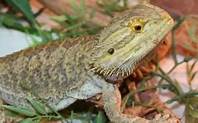Can You Own a Pet Bear?
The idea of owning a pet bear might sound appealing, but it's important to understand the complexities and responsibilities involved before making a decision. While bears can be fascinating and majestic creatures, they are also wild animals with specific needs and behaviors that may not be suitable for a home environment.

Legality of Owning a Pet Bear
In many countries, owning a bear as a pet is illegal or heavily regulated. Laws vary by jurisdiction, so it's crucial to thoroughly research and understand the specific regulations in your area. Even if owning a bear is permitted, obtaining the necessary permits and licenses can be challenging and may require extensive documentation and inspection.
Behavioral Considerations
Bears are wild animals with instincts and behaviors that can pose risks to both humans and the bears themselves. They can be unpredictable and territorial, and even well-trained bears may exhibit aggressive or defensive behavior if they feel threatened or stressed. Additionally, bears are not naturally domesticated, so they may not respond well to traditional training methods.
Habitat and Care Requirements
Bears require specialized care and a suitable habitat to thrive. They need a large, secure enclosure that allows them to engage in natural behaviors, such as foraging, climbing, and swimming. Providing appropriate nutrition, veterinary care, and enrichment activities is also crucial for their overall well-being.
Cost and Practicality
Owning a pet bear is not only legally and ethically challenging but also financially demanding. The expenses associated with housing, food, veterinary care, and insurance can be substantial. Additionally, finding a qualified veterinarian who specializes in bear care can be difficult, and traveling to such a specialist may also incur significant costs.
Environmental Impact
Keeping bears in captivity can have negative environmental consequences. Bears play vital roles in their natural ecosystems, maintaining biodiversity and contributing to the overall health of the environment. Removing bears from their natural habitats can disrupt ecosystems and contribute to the decline of wild bear populations.
Alternatives to Owning a Pet Bear
If you are passionate about bears but cannot commit to owning one, there are several ways to enjoy and support bears without bringing them into a domestic environment. Visiting bear sanctuaries, supporting conservation organizations, or volunteering at wildlife rehabilitation centers are meaningful ways to contribute to bear welfare.
Conclusion
Owning a pet bear is a complex and challenging endeavor that requires careful consideration of legal, ethical, and practical factors. While the allure of keeping a bear as a companion may be strong, it's important to recognize that bears are wild animals best left in their natural habitats. Exploring alternative ways to appreciate and support bears can provide a fulfilling and responsible approach to interacting with these magnificent creatures.
Declaration: All article resources on this website, unless otherwise specified or labeled, are collected from online resources. If the content on this website infringes on the legitimate rights and interests of the original author, you can contact this website to delete it.





